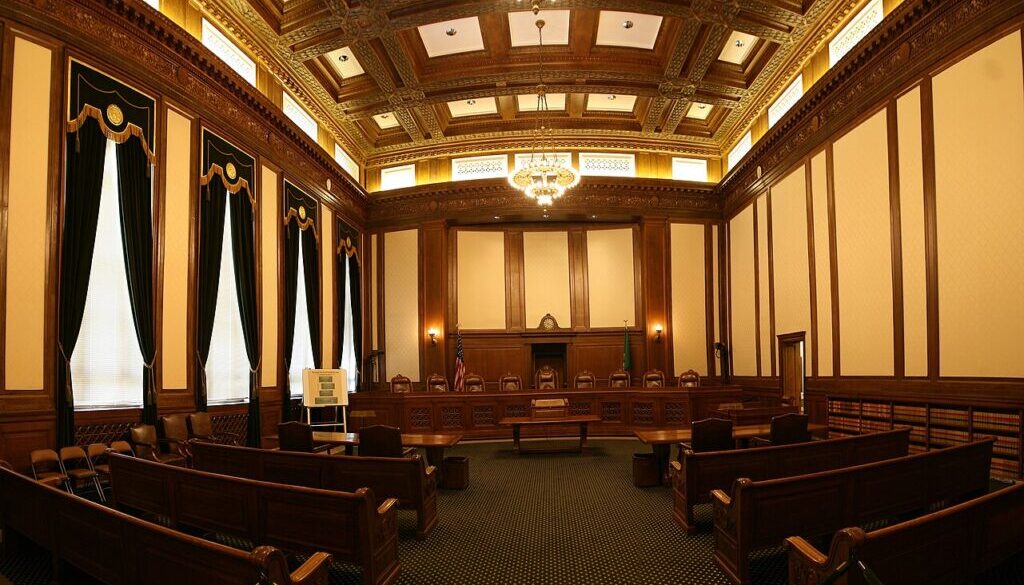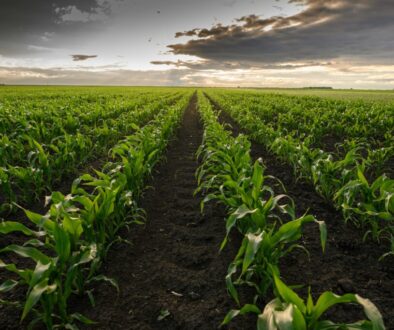High-stakes hearing to debate state law limiting PCB injury claims
Lawyers for three teachers in Washington state will face off against attorneys for the former Monsanto company in a key court hearing on Tuesday over alleged PCB-related injuries that could impact similar cases nationwide.
The teachers won a $185 million verdict in 2021 against Monsanto-owner Bayer AG for health problems they said were caused by their exposure to toxic polychlorinated biphenyls (PCBs) in fluorescent lighting in the school where they worked. They alleged Monsanto concealed the dangers of PCBs to elevate company profits.
An appeals court overturned the verdict, then last year the plaintiffs asked the Washington Supreme Court to review the case on three issues, including whether or not a state statute that gives plaintiffs only 12 years to bring product liability claims is constitutional.
Each side will have 30 minutes to argue their positions to Washington Supreme Court panel of justices. The court is also expected to hear competing arguments over whether the plaintiffs should have been able to seek punitive damages and if testimony from a plaintiff’s exposure expert should have been excluded.
More than 200 other teachers, students and family members have sued Bayer alleging brain damage from exposure to PCBs at the same school.
The rest of these cases are “all kind of waiting in the wings behind this appeal,” said Deepak Gupta, an attorney for the plaintiffs with the Gupta Wessler law firm. “If Bayer were to win the statute of repose issue, the rest of the cases from the Washington state school would “just vanish,” he said. “It’s a complete immunity. So, the stakes are really high.”
Bayer’s stock market shares dropped by almost 7% in October when the Washington Supreme Court announced that it would review the lower court’s ruling favoring the company.
Along with potentially impacting those other cases the state Supreme Court’s decision could impact cases against Monsanto-owner Bayer across the country, said Gupta.
So far, personal injury claims have been filed in Massachusetts over alleged injuries connected to PCB exposures from an electrical equipment plant operated by the company General Electric, in Nevada over PCBs in waste from a train depo, and in Vermont related to building materials in a high school and an elementary school.
The state high court decision may also have implications for an emerging wave of lawsuits over health harms from exposure to per- and polyfluoroalkyl substances (PFAS), another type of toxic, persistent chemicals, said Gupta. If other courts were to decide that a statute of repose applies for claims involving “forever chemicals,” that logic could allow manufacturers to escape liability if they made the chemicals decades earlier, even though PFAS, too, can impact people’s health many years later, he said.
Both sides’ arguments regarding the statute of repose and punitive damages rest, in part, on which state’s laws should be applied to the case. While the alleged injuries occurred in Washington, Monsanto was based in Missouri, and though Washington law applies a statute of repose and generally does not allow punitive damages, Missouri law would not apply such a statute of repose and does allow for punitive damages.
When asked for comment about the upcoming hearing, Bayer said the claims forming this case and others resulting from exposures at the same school “relate to bulk industrial materials Monsanto voluntarily ceased manufacturing in 1977 and are unrelated to any ongoing business…”
Bayer, a German conglomerate that bought Monsanto in 2018, additionally states on its website that materials and fixtures contaminated with PCBs were installed by other companies and were “decades beyond their useful lives.”
“The evidence also is not sufficient in these cases to support a causation and liability finding against the company,” Bayer states. “Exposure to PCBs in the air is typically in trace concentrations, not significant enough to cause increased risk to health. In addition, buildings with claimed PCB issues also are often dealing with other indoor air quality issues and air circulation issues.”
Until they were banned by the US Environmental Protection Agency (EPA) in 1979, PCBs were commonly used in in light fixtures, caulk, paint and building materials. The chemicals have been classified as carcinogenic to humans by an international cancer research agency and linked to other health problems including liver damage and skin conditions.
“Virtually every human being in the United States, if not the world, now has PCBs in their bodies,” according to the Journal of Public Health Policy.
Monsanto was the only producer of PCBs in the US from the 1930s until the 1970s. In 1972, Monsanto and General Electric allegedly engaged in a “criminal corporate action” through a secret deal that allowed the companies to profit from PCB sales despite know they were harmful, according to a lawsuit filed last year by a small town in Massachusetts heavily contaminated with the chemicals.
While the chemicals are now banned in most countries around the world, they remain in many older buildings, especially schools. As many as 26,000 US school buildings may contain caulk contaminated with PCBs, according to a 2016 study, with a report from the office of Sen. Ed Markey of Massachusetts finding that the cleanup could cost up to $50 billion.
In November, Sen. Markey and Congresswoman Jennifer McClellan of Virginia reintroduced a bill that would authorize $52 billion over 10 years to help schools rid their buildings of toxic chemicals, including PCBs.
Despite the widespread contamination, the EPA does not require schools to test for the chemicals, although it does offer guidelines for schools that do. The agency has been identifying potential sources of PCBs in schools and studying methods to reduce their emissions, according to an EPA website.
Last April, the EPA denied a request from the Washington Department of Ecology urging the federal government to set tighter limits on PCBs in consumer products to reduce pollution of its waterways.
The Washington Supreme Court appeal comes after Bayer agreed to a $160 million settlement with Seattle last summer for PCB pollution in a major river that runs through the city.
Washington won $95 million in a 2016 settlement with Monsanto after it became the first state to sue the company. Other states including Illinois, Maryland, New Jersey, Oregon and Vermont have filed lawsuits alleging contamination from Monsanto PCBs. In 2000, a class action suit involving about 2,500 cities and towns across multiple states reached a $650 million settlement with the company for alleged PCB water pollution.
(Featured image: The interior of the Washington Supreme Court. Photo by I, Cacophony, Wikimedia Commons CC BY-SA 3.0.)
 EWG
EWG


